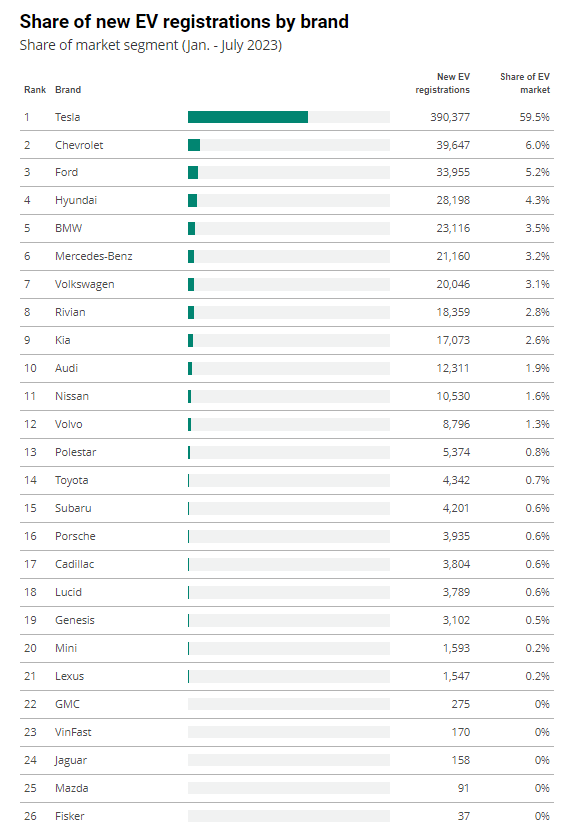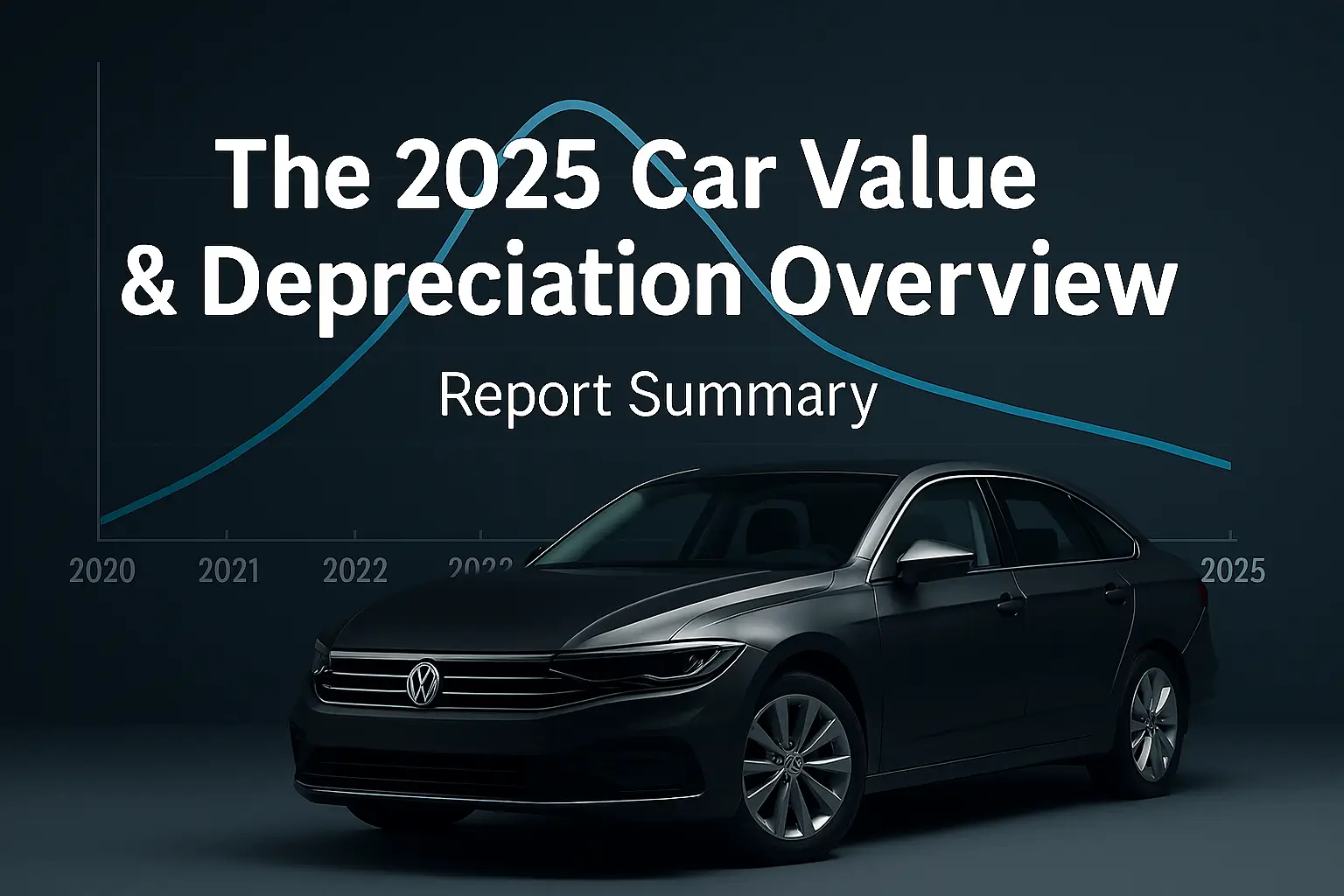Tesla Drives U.S. EV Market Surge with Aggressive Price Cuts (PDF)
The American electric vehicle (EV) landscape is undergoing a seismic shift, with Tesla emerging as a dominant force, catalyzing the transition. Recent registration data reveals a fascinating story of how Tesla’s strategic price reductions have propelled its market share, resulting in a remarkable 50 percent surge in registrations from January to July 2023. This blog post delves into the implications of these statistics, explores the competitive landscape, and predicts the future of EVs in the United States.
The Electric Revolution Gathers Pace
Electric vehicles are no longer a niche market. The data shows that the U.S. EV market share escalated to 7.2 percent in the first seven months of 2023. This surge can be largely attributed to Tesla, which now commands an impressive 59.5 percent of the EV market.
While the overall EV registrations witnessed a remarkable 67 percent YoY growth, Tesla’s meteoric rise remains a standout achievement.
Tesla’s Dominance: Breaking Down the Numbers
In July alone, Tesla notched up 60,769 new registrations, surpassing all other EV manufacturers combined, who managed 48,566 registrations collectively. This data underscores Tesla’s undisputed supremacy in the American EV landscape. However, it’s not just Tesla that’s benefiting from this electric revolution.
The EV Competition Heats Up
Competing brands such as BMW, Mercedes-Benz, and Rivian have made significant gains, proving that the EV space is not a one-horse race. Ford, Hyundai, and Kia also witnessed an uptick in registrations, albeit with slightly decreased market shares due to intensifying competition.
The Brand Breakdown
Chevrolet: Chevrolet secured the second position with 39,647 new EV registrations, claiming a 6 percent share of the electric market. Their Bolt EV and slightly larger Bolt EUV were primarily responsible for these registrations.
Ford: Ford secured the third position in the EV race, boasting an impressive 33,955 new registrations attributed to its F-150 Lightning pickup, Mustang Mach-E crossover, and E-Transit 350 commercial van. However, Ford did experience a marginal decrease in its EV market share, which slipped from 6.9 percent to 5.2 percent during this period.
Hyundai: Hyundai clinched the fourth spot with 28,198 new registrations, marking a 61 percent increase over the previous year. However, Hyundai’s EV market share saw a slight decline from 4.4 percent to 4.3 percent.
BMW: BMW claimed the fifth spot in the EV race, with 23,116 new registrations, securing a 3.5 percent share. This is a significant improvement from their 0.8 percent market share in the year before.
Tesla’s Vehicle-Specific Performance
While Tesla’s overall registrations skyrocketed, the story is not uniform across its lineup. The Model Y compact crossover outshone the rest, more than doubling its registrations to 236,041. This surge was propelled by price cuts initiated in January and access to the $7,500 federal tax credit.
The Model 3 also saw a 21 percent increase in registrations, with a refreshed version set to hit the U.S. market soon. However, the flagship Model S sedan witnessed a 51 percent decline in registrations, while the Model X crossover dropped 14 percent.
Affordability: Tesla’s Trump Card
J.D. Power, a notable authority on automotive market dynamics, reports an estimated 8.5 percent EV market share for the month of July. Within this evolving landscape, Tesla stands as a catalyst for the widespread adoption of electric vehicles.
Tesla’s bold pricing initiatives have effectively democratized electric mobility, rendering EVs more accessible than conventional internal combustion engine vehicles. This strategic approach has played a pivotal role in cementing Tesla’s dominance in the market.
The Road Ahead
As EVs continue to penetrate more market segments, it’s safe to assume that adoption will rise. J.D. Power predicts EV market share to reach 9 percent by the end of the year, signaling a promising future for electric vehicles in the United States.
Conclusion
In conclusion, Tesla’s impressive surge in EV registrations in the U.S. is a testament to the growing popularity of electric vehicles. While Tesla remains the undisputed leader, other automakers are catching up fast, creating a competitive landscape that will only benefit consumers. As we look ahead, the electric vehicle revolution is set to gather even more momentum, with affordability and innovation driving the charge towards a greener and more sustainable automotive future in America.




